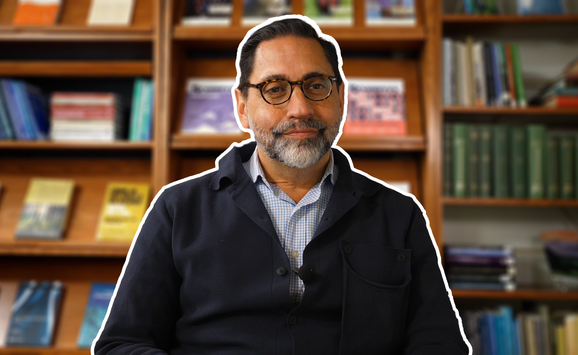If the federal government reduces the capacity in federal agencies for research, data collection, and public engagement, then the societal benefits from their networks with civil society researchers may be endangered.
Science is a team effort, in which researchers affiliated with academia, think tanks, and government work collaboratively to create new knowledge and solve society’s most pressing problems. Governments provide data and identify the problems that need solving through long institutional memories and collaborations with external scientists who help develop solutions.
Recent efforts to reduce staff across the federal government severely restrict this pipeline of productive problem solving. The agencies that handle environmental and energy issues have seen significant staff reductions since January, either through layoffs, early retirements, or buyouts. Almost 20 percent of the staff at the Department of Energy has accepted a buyout. The National Oceanic and Atmospheric Administration may have lost 20 percent of its workforce; the Federal Emergency Management Agency, about 30 percent; the US Forest Service, 10 percent.
Further cuts are planned for the summer to comply with an executive order and subsequent guidance that calls for large-scale reductions in force across federal agencies. The Environmental Protection Agency has announced plans to reorganize and shrink its workforce by an additional 20 percent, including the elimination of its research arm and environmental justice office. Mass layoffs may depend on ongoing or future legal battles, but more federal workers are resigning or accepting buyouts in anticipation of firings or because of work environments that have become increasingly stressful.
The staff reductions and general losses of capacity at federal agencies herald a structural change in the policy and evidence ecosystem. With each federal worker that exits the government, expertise and experience are lost, and so are their social and professional networks. Without those networks, less quality information—or lower-quality information—may be available to policymakers, researchers, communities, and businesses across the country. A potential result is that researchers will analyze policies without important federal data and input, that information could be politicized, and that policy will be ineffective and inefficient.
This blog post chronicles some of the positive interactions that researchers at Resources for the Future (RFF) have had with government scientists, and the results of their activities (such as database development), so readers can have a better appreciation of what could be lost.

In 1982, for example, Congress passed a law that established the Coastal Barrier Resources System, a set of coastal lands where federal flood insurance, development subsidies, and disaster relief are unavailable. The law aims to protect natural coastal ecosystems and reduce the costs and human harm from extreme weather events in these coastal areas by removing incentives for development.
In August 2024, Margaret Walls and coauthors published a study of the effectiveness of the Coastal Barrier Resources System. Walls, who directs RFF’s Climate Risks and Resilience Program, knew that understanding the effects of the system was important to the federal government; in particular, the Fish and Wildlife Service, the federal agency that is responsible for the conservation of wildlife and habitats in the United States and administers the Coastal Barrier Resources System. In turn, engagement with the agency helped Walls and her team understand the nuances of the system and improve their research.
The study was acutely relevant to Congress: In November 2024, Congress passed a new law with bipartisan support that added to the Coastal Barrier Resources System an amount of land approximately equal to 220,000 football fields.
Yet, these kinds of interactions are now being disrupted.
David Wear, currently the director of RFF’s Land Use, Forestry, and Agriculture Program, had spent most of his career in the research division of the Forest Service and stresses the value of the long-run data sets maintained by the agency. After all, “forests grow slowly,” he says.
“Well-developed, long-run data sets allow researchers to test hypotheses or do careful assessments of policy questions in the short run,” says Wear. And because scientists at the Forest Service generally can’t recommend changes in policy, “civil society can extend the conversation into the details of policy and actually engage with policymakers to improve the information platform upon which policy choices are made,” says Wear. But the loss of federal workers strains the ability of the agency to understand what’s happening in US forests.

The context and nuance federal workers can provide about these data sets also seem at risk. Karen Palmer, the director of RFF’s Electric Power Program, has seen benefits in her research because she has been able to ask experts at the Energy Information Administration about its Annual Energy Outlook, a report with data and projections about the domestic energy sector that often serves as a baseline for policy research. The Energy Information Administration traditionally holds a launch event to explain findings in the report and answer questions from the public, but not this year—a condensed version of the report simply was posted online. “It’s sad to lose that event,” says Palmer. In general, Palmer adds, “it’s just going to be harder for us [at RFF] to do our work” due to staff reductions at the agency.
Engagement with federal workers also is valuable because of their experience implementing many of the policies and programs that researchers study. “The loss of that kind of engagement, ground-truthing, and brainstorming with people who have that much experience is just huge,” says Kevin Rennert, director of RFF’s Federal Climate Policy Initiative. “Our work will continue to move forward, but it will be missing key input from these experienced practitioners.”
With the capacity of federal agencies in flux and networks between federal workers and civil society thinned or gone, researchers likely will struggle to replace the federal data sets, funding, and input necessary to answer certain research questions.
Reductions in the quality or availability of federal data would be very difficult to replace—or irreplaceable. Researchers at RFF have long-standing connections with state and local policymakers and plan to continue to work on state-level issues. However, state governments generally lack the infrastructure to collect and report data at a similar quality as the federal government on a consistent basis. Universities also regularly partner with RFF researchers, though universities are at risk of losing funding. Businesses or consulting firms may collect proprietary data on subjects that are relevant to researchers, and they often charge for access to the data. The federal government performs a public service by maintaining high-quality data sets and making them available for free.
This orientation toward service distinguishes federal agencies. In the experience of Dallas Burtraw, a senior fellow at RFF who has engaged with the Environmental Protection Agency on multiple projects since the 1990s, federal workers “feel that their mission is to serve the public interest within our democracy and do what’s asked of them so the best policy decisions can be made.”

Most directly affected by the cuts, of course, are federal workers themselves. Burtraw, Palmer, Rennert, Walls, and Wear all know people who have been swept up in the staff reductions, which have taken an emotional toll on the affected employees and communities across the country.
Walls, RFF’s Climate Risks and Resilience Program director, emphasizes the potential effects on local communities of reductions in capacity at federal agencies. The National Oceanic and Atmospheric Administration, for example, has provided communities with a baseline level of knowledge about local problems, such as sea level rise on the coast, and the Federal Emergency Management Agency has helped fund solutions for flooding and other disasters that can dramatically impact local communities that otherwise would be left without sufficient support.
On a larger scale, the loss of capacity in federal agencies may impair the ability of the federal government to adapt if unexpected problems arise in the future. In the short term, the consequences of staff reductions may not be apparent, says Burtraw. But “when changes become necessary, then we’re going to be vulnerable.”

For more timely insights about developments in environmental and energy policy, browse the If/Then series.






